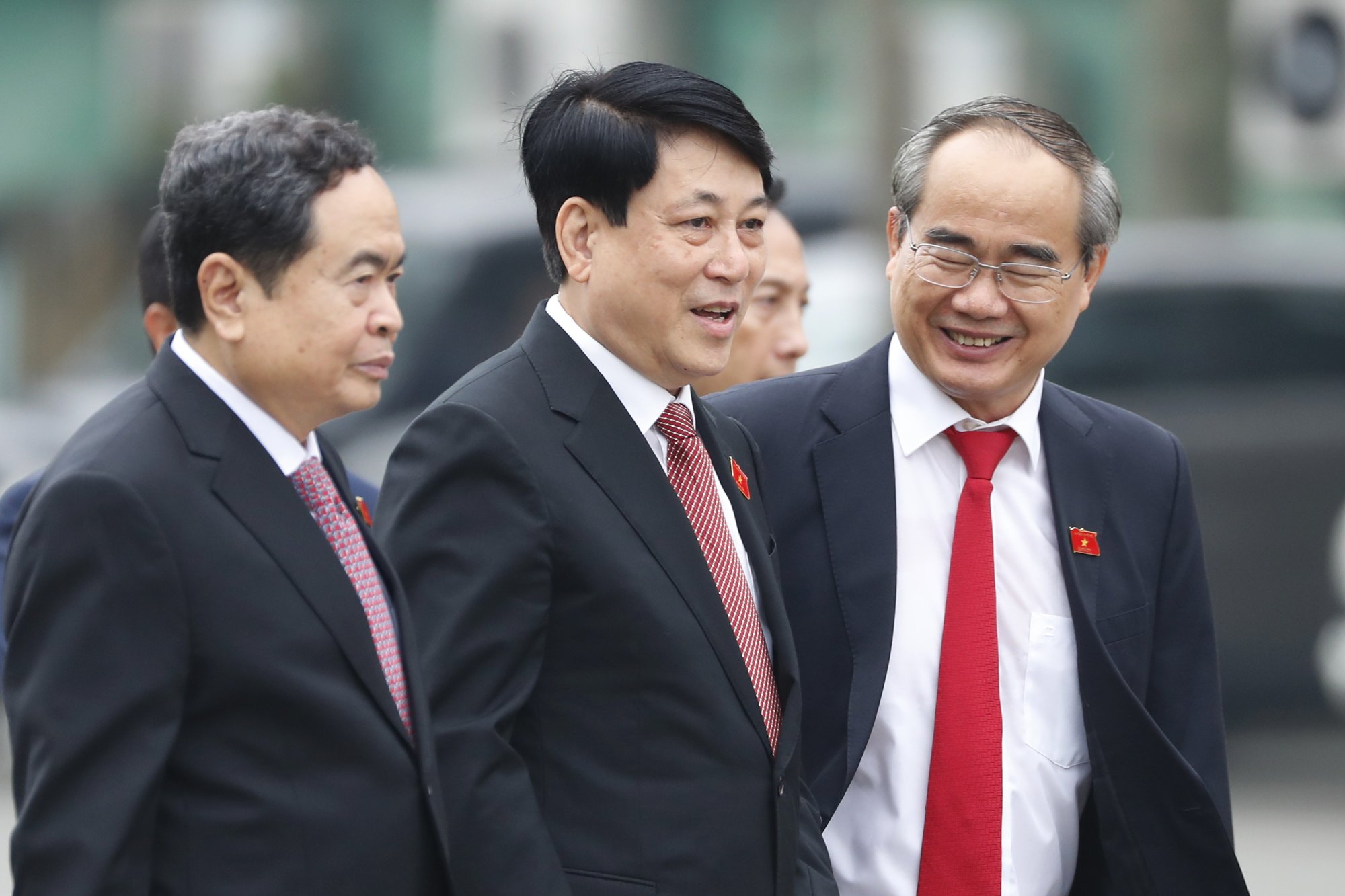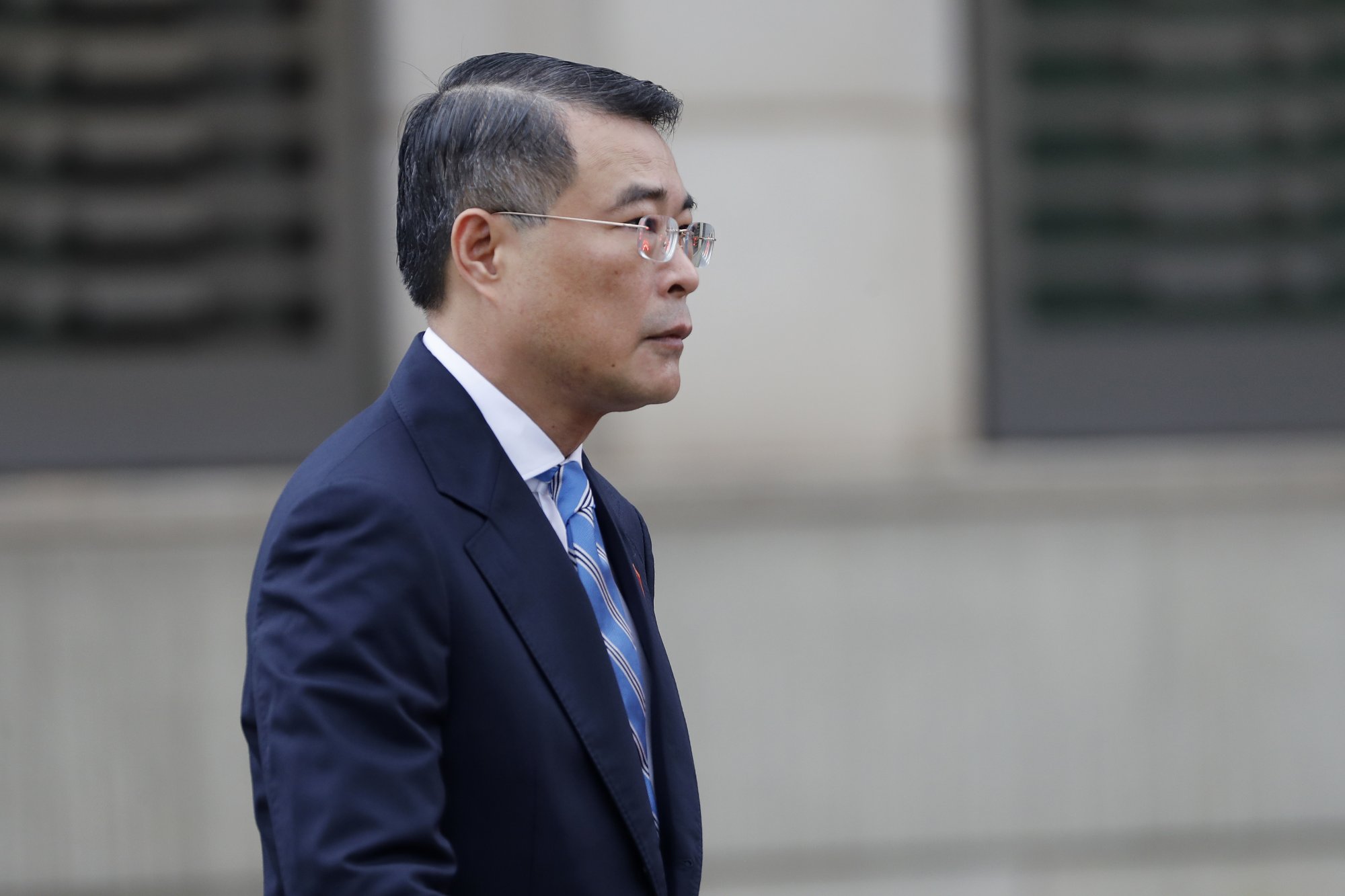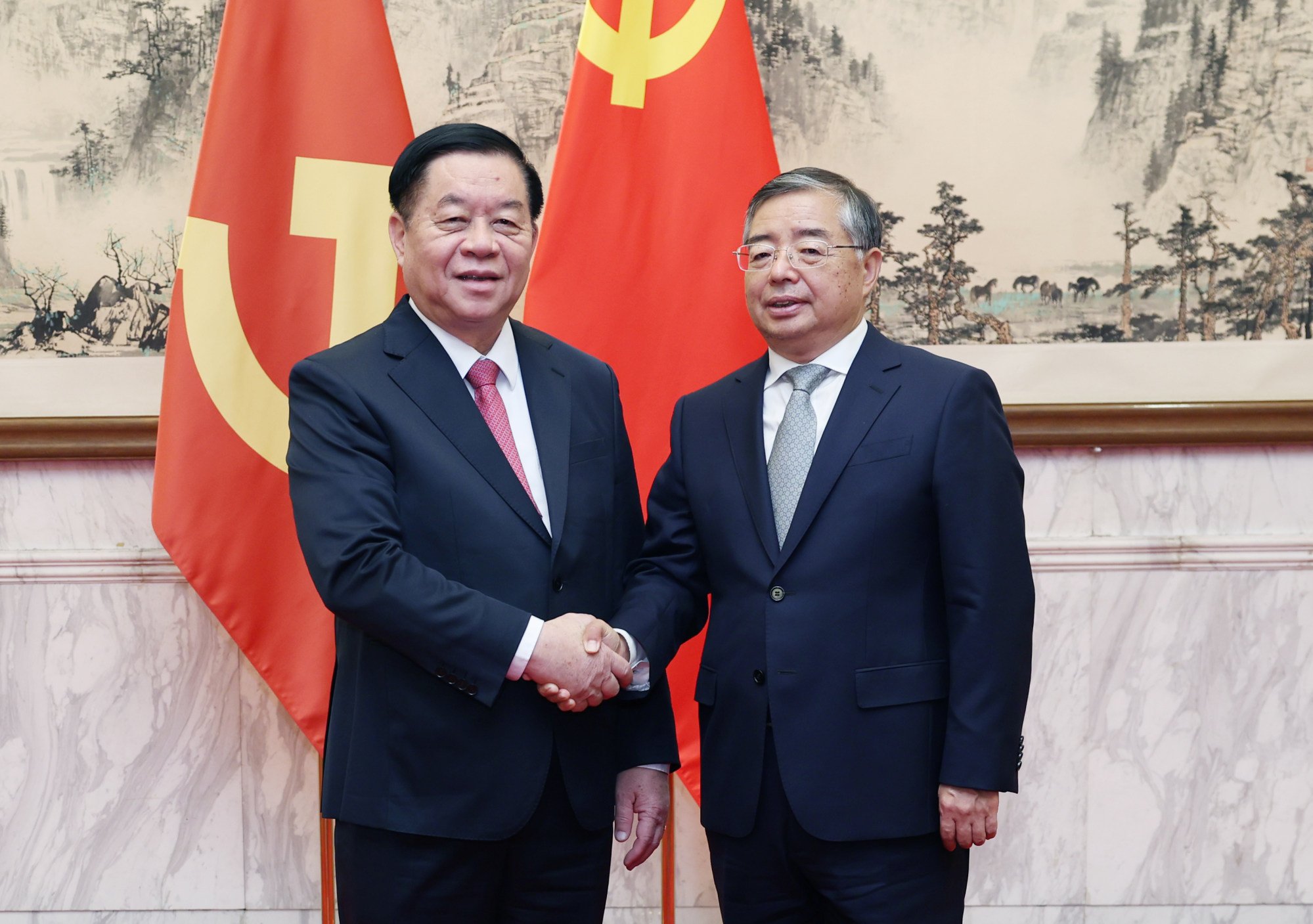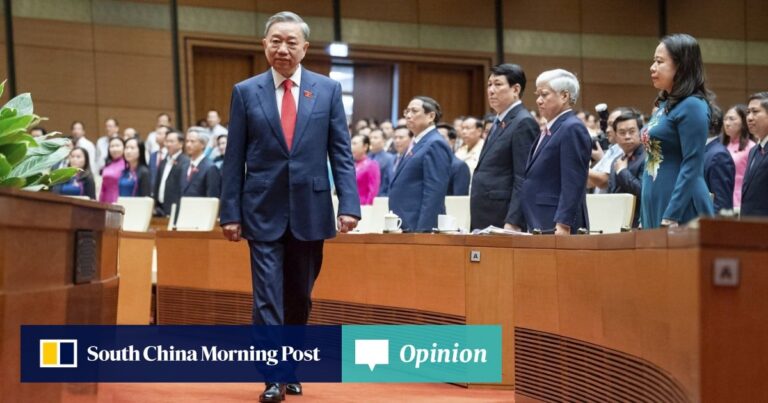But it is crucial to evaluate the recent newcomers promoted to the Politburo and Secretariat, the one-party state’s most important political institutions, as given the timing and criteria of their appointments, they are likely to remain in the top echelons of the national leadership beyond the 14th Party Congress in 2026.
The Communist Party of Vietnam’s 9th Plenary Session on May 16 elected four new Politburo members to replace six leaders who have been dismissed after 2021. They are Le Minh Hung, former Chief of Staff of the Communist Party of Vietnam Central Committee, Bui Thi Minh Hoai, chairman of the Central Committee for Mass Mobilization, Do Van Chien, chairman of the Vietnam Fatherland Front, and Nguyen Trong Nghia, chairman of the Central Propaganda Commission. Deputy Minister of Public Security Luong Tam Quang was selected to head the Ministry of Public Security, a Politburo-level position, signaling his imminent promotion to a key policy-making body.

The Secretariat of the Communist Party of Vietnam, which manages the day-to-day running of the party, has also been restructured at the highest level. General Luong Cuong, Director of the General Political Department of the Vietnam People’s Army, has replaced Truong Thi Mai as a permanent member of the Secretariat. General Trinh Van Quyet has replaced Cuong as Minister of Defense and qualified to join the Secretariat. These personnel changes significantly increase the military’s presence in the highest institutions of the Communist Party of Vietnam, with three new members of the Politburo (Luong Cuong, Nguyen Trong Nghia, and Minister of Defense Phan Van Giang) and two new members of the Secretariat (Trinh Van Quyet and Nguyen Trong Nghia, who is both a member of the Politburo and a member of the Secretariat). This will balance power with the public security apparatus, which dominates the elite institutions. Another notable promotion is the appointment of Deputy Minister of Public Security Nguyen Duy Ngoc as Chief of Staff of the Central Committee of the Communist Party of Vietnam, suggesting that he may soon be promoted to the Secretariat.
More changes are likely to follow, such as the promotion of a new deputy prime minister and deputy speaker of parliament, but these appointments have filled almost all of the vacancies left by leaders ousted in the anti-corruption campaign, stabilizing a political system in turmoil ahead of the party congress and paving the way for a new leadership change.

A notable feature of the seven new leaders is that they have backgrounds in the party organization or the police or military. Only Le Minh Hung, former governor of the State Bank of Vietnam, qualifies as a technocrat (someone with technical or economic expertise). This makes two of the 16 Politburo members technocrats, including Hanoi Party Secretary Dinh Tien Dung. At the 12th Party Congress in 2016, there were seven technocrats out of 16, and at the start of the 13th Party Congress in 2021, there were five technocrats out of 19. This is the lowest ratio of technocrats in the Politburo since 1997. The party often follows the principle of technological innovation. heart attack (“Both Reds and Experts”) This meant that in choosing leaders, they had to demonstrate commitment to Communist ideology and technical expertise. But the emphasis has now shifted decisively to ideological purity.
Second, the Communist Party of Vietnam appears to be trying to rebalance regional and gender representation among its cadres, as seen in the promotion of a woman (Bui Thi Minh Hoai), an ethnic minority member (Do Van Chien), and a southerner (General Nguyen Trong Nghia). This effort suggests a desire to maintain certain norms despite recent turmoil.
Third, the promotion of Generals Luong Tam Quang and Nguyen Duy Ngoc, longtime aides of To Lam at the Ministry of Public Security, is significant. In some ways, both generals are “special” cases because they did not meet the formal criteria for promotion, which requires them to serve at least a term as Central Committee representatives. More surprisingly, the two were included as “exceptions” at the 13th Party Congress because they exceeded the age limit for first-time election when they were first elected to the committee in 2021. Combined with the promotion of General Vu Hong Van to the Central Supervisory Committee last November, these moves suggest that To Lam may be consolidating his power within the party-state system and casting himself into the role of general secretary in 2026.

The full impact of these personnel changes remains to be seen, but they are unlikely to result in major changes to Vietnam’s economic governance or foreign policy. Performance-based legitimacy will continue to underpin the regime’s stability, while trade liberalization, ideological considerations, and wariness of China will likely sustain Hanoi’s “bamboo diplomacy” with Beijing and the United States.
However, the decline in technocratic expertise among the top leaders raises concerns about Vietnam’s ability to tackle multifaceted challenges, including economic issues, energy transition, and foreign policy. Moreover, the new leaders, with the exception of two deputy ministers of public security, are more “thinkers” than “doers” and lack any significant track record to justify their promotion. This reinforces the belief that in the uncertain climate of the anti-corruption campaign, it is wiser for bureaucrats to play it safe and reduce their activities to survive rather than take risks. This does little to encourage cadres to “dare to think and dare to work” to solve the current bureaucratic paralysis, a phrase coined by General Secretary Nguyen Phu Trong to protect and motivate party members.
On the bright side, this mass promotion may signal that factions are resolving their differences and reducing intra-party infighting. With two years until the next Party Congress, Tro Lam appears to have emerged as the ultimate winner of the fiercest battle for the throne in the recent history of the Communist Party of Vietnam. While Vietnam’s long-term trajectory remains uncertain, this new stability may provide some respite after years of party leadership turmoil. This will help the party prepare for the coming leadership transition.

